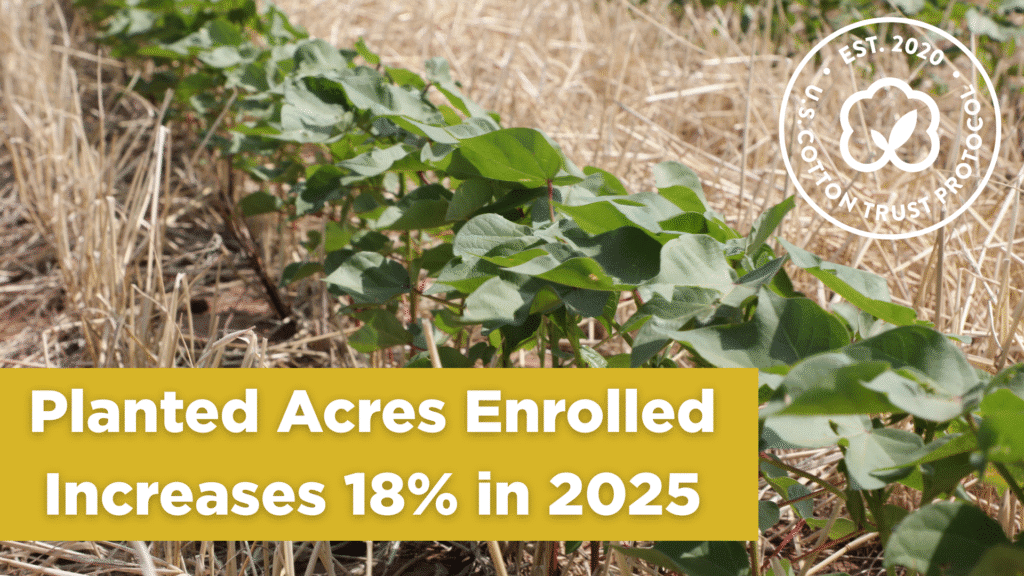As we become more aware of the impact of human activity on the environment and the climate, sustainability performance in all sectors of the global economy has come under scrutiny. One area of particular concern is energy use, as it has a significant impact on the environment.
Recognizing the need for more sustainable cotton production, the U.S. Cotton Trust Protocol was established to help the industry improve its environmental footprint. The program’s energy use metric, which focuses on farm-level, science-based data, helps cotton growers identify areas where they can improve energy efficiency and their environmental impact.
The program’s energy use metric takes into account both direct and indirect energy used during cotton crop production, providing a comprehensive understanding of the energy footprint of cotton production. Direct energy includes energy consumed by machinery during crop production, such as diesel fuel for farm equipment, electricity for pumping irrigation water, and electricity and natural gas for ginning. Meanwhile, indirect energy comes from fertilizer production and transport, and crop protectant manufacturing.
To calculate the full life-cycle energy used in cotton production, the program uses the GREET model.
In the 2023/24 crop year, Trust Protocol growers efficiently reduced energy use by 27% compared to the 2015 baseline. The National Goal is to achieve a 15% reduction in energy use by 2025.
Innovations in technology are helping growers improve their energy use. For example, satellite imagery allows growers to see specific areas in their fields that may need attention. The imagery produces color-coded maps that enable growers to detect potential soil nutrient deficiencies, pest issues, or diseases that may impact crops. This specific data enables growers to be more targeted and efficient in how they address field-level issues—ultimately helping to improve their energy efficiency.
The Trust Protocol is committed to providing growers with data and support that can help them to reduce their energy use and improve their environmental impact. To learn more about the five other metrics that the Trust Protocol measures, click here.





